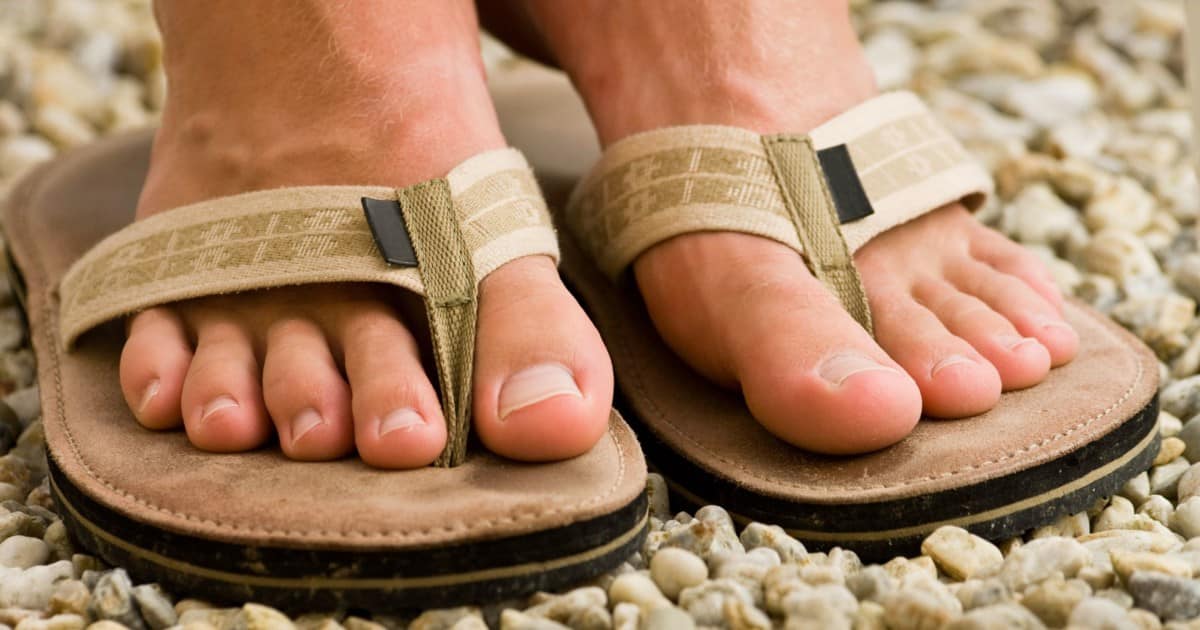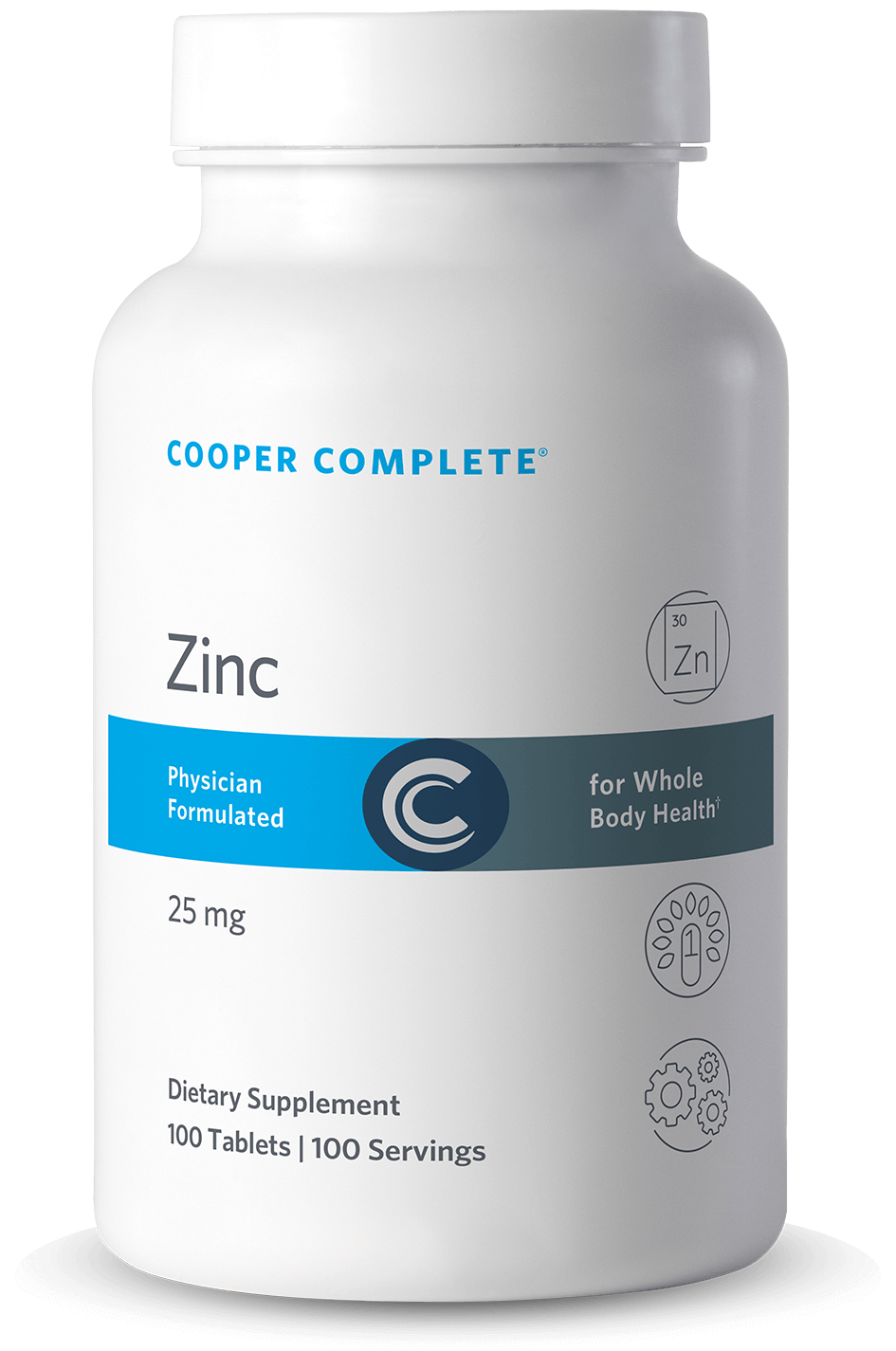How To Stop Feet From Stinking & The Impact of Zinc

I know it’s a somewhat personal question, but do your feet stink? For some people, it’s an everyday issue that’s both embarrassing and frustrating. If you’ve been searching for natural ways to stop feet from stinking, you might be surprised to learn that the answer could involve zinc†.
In a “Dear Annie” advice column, a nurse wrote in to share an unusual but intriguing tip: She said zinc deficiency can cause body odor, including stinky, smelly feet, and that after taking zinc supplements, the foot odor disappeared completely†. I decided to look up the science on zinc to find any literature connecting zinc deficiency with odor and whether zinc can prevent feet from smelling.

Zinc Supplement 25 mg
This Zinc Supplement is comprised of zinc gluconate and zinc citrate for optimal absorption.† Zinc is important for muscle function, healthy aging, skin and immune health.†
$20.48 Add to cartWhy Do Feet Smell?
The main culprit for smelly feet is sweat. Did you know that feet have more sweat glands per square inch than any other part of the body? When feet sweat, especially when trapped in shoes and socks for long periods, bacteria break down the sweat and produce odor. The medical term for smelly feet is bromodosis, and while it’s usually harmless, it can be off-putting and embarrassing.
What Does Zinc Do in the Body?
Zinc is an essential mineral involved in more than 300 enzyme processes in the body.† It plays a role in immune function†, wound healing†, growth and development†, and even smell and taste perception†. According to the U.S. National Institutes of Health (NIH), the recommended daily intake for zinc is:
- 8 mg for women
- 11 mg for men
While food sources of zinc include oysters, shellfish, poultry and meat, as well as fortified cereals and nutrition bars, the average diet may not contain enough zinc. Good food sources of zinc include oysters, red meat, poultry, beans, nuts, fortified cereals, and dairy products. However, studies indicate that many Americans may not obtain sufficient zinc from their diet alone, especially if they follow a plant-based diet or have gastrointestinal issues that affect zinc absorption.
Zinc Food Forms
Incorporating food sources of zinc into your daily diet can be pretty simple. Oysters have an enormous amount of zinc! Beef, chicken and turkey are all good options. For plant-based options, consider incorporating beans, lentils, chickpeas, pumpkin seeds, and cashews into meals or snacks. Whole grains and fortified breakfast cereals also contain zinc; check package labels to ensure they’re enriched. Dairy products, such as milk, yogurt, and cheese, provide additional support, especially for individuals following a plant-based diet. Here’s a chart that shows common food sources of zinc, their standard serving sizes, and the approximate amount of zinc they provide:
Zinc in Foods |
||
|---|---|---|
| Food | Serving Size | Zinc (mg) |
| Oysters (cooked, wild) | 3 ounces (about 6 oysters) | 74.0 mg |
| Beef chuck roast (braised) | 3 ounces | 7.0 mg |
| Turkey (breast) | 3 ounces | 1.0 to 1.5 mg |
| Chicken (breast) | 3 ounces | 0.9 to 1.0 mg |
| Chicken (dark meat) | 3 ounces | 2.9 mg |
| Fortified breakfast cereal | 1 serving (check label) | 3-15 mg |
| Cashews (dry roasted) | 1 ounce (about 18 nuts) | 1.6 mg |
| Almonds (dry roasted) | 1 ounce (about 23 nuts) | 0.9 mg |
| Chickpeas (cooked) | 1/2 cup | 1.3 mg |
| Yogurt (plain, low-fat) | 1 cup | 1.0 mg |
| Cheddar cheese | 1 ounce | 0.9 mg |
| Milk | 1 cup | 1.0 mg |
Zinc Supplement Forms
Zinc supplements are available in various forms, including:
- Zinc acetate
- Zinc chelate
- Zinc citrate
- Zinc gluconate
- Zinc oxide
- Zinc picolinate
- Zinc sulfate
The sulfate form is typically the least expensive option, while forms like gluconate and citrate are better tolerated and more easily absorbed.† At Cooper Complete, our multivitamins use the chelate form of zinc, and our standalone zinc supplement contains a blend of gluconate and citrate.
What Does the Science Say About Zinc and General Health?
The scientific literature on zinc is extensive, with thousands of studies investigating the role of zinc in health, covering a wide range of topics, including:
- Immune function and infection support†: Zinc is essential for a healthy immune response†. Research suggests that zinc may help reduce the severity and duration of colds, as well as support immune defense against infections such as pneumonia and viral illnesses†.
- Wound healing and skin repair†: Zinc plays a critical role in tissue growth and repair†.
- Zinc deficiency in malnourished children†: In developing countries, zinc supplementation has been shown to significantly reduce the risk of illness and support growth and immune development in children with poor nutritional status†.
- Treatment of diarrhea in children†: Zinc is a well-established treatment for acute diarrhea in children, helping to shorten duration and reduce severity, especially in populations with low zinc intake†.
- Age-related macular degeneration (AMD)†: Zinc is a component of the AREDS (Age-Related Eye Disease Study) formulas and may slow the progression of AMD†.
- Neurological and cognitive health†: Studies suggest zinc may influence memory, learning, and overall brain function†. Deficiencies have been linked to mood changes† and cognitive decline† in older adults.
- Reproductive health and hormone regulation†: Zinc plays a crucial role in male fertility and testosterone production. In both men and women, zinc supports the development of reproductive organs and maintains hormonal balance†.
- Antioxidant and anti-inflammatory effects†: Zinc helps protect cells from oxidative stress and reduces inflammation†.
While there’s conflicting research and not all the studies show the same outcomes, the overall body of research confirms zinc’s essential role in health, with robust evidence surrounding immune support† and deficiency correction†.
What Does the Science Say About Zinc and Body Odor?
Despite a thorough review of scientific studies and medical journals, there is no published clinical research directly linking zinc supplementation to a reduction in foot odor. That said, anecdotal evidence continues to circulate. In addition to the nurse’s story in “Dear Annie,” the Graedons at The People’s Pharmacy have heard from many readers who reported dramatic reductions in foot odor after taking 50 to 100 mg of zinc daily for about a month†. We recommend exercising caution if you choose this route, as the upper limit of zinc intake is 40 mg, and long-term high levels of zinc can be toxic.
Other Home Remedies to Stop Feet from Stinking
If you’re struggling with smelly feet, here are a few other remedies worth considering:
Tea Soaks (Tannic Acid)
Another home remedy suggested by The People’s Pharmacy to prevent feet from stinking and smelling is to soak the feet in warm water with tannic acid†. Tannic acid has natural astringent properties that may help kill odor-causing bacteria†. Because tea is high in tannic acid, adding a few black tea bags to a foot bath is an easy and inexpensive way to reduce foot odor.
Foot Powders and Antiperspirants
These products help absorb moisture and reduce bacterial growth. Some foot powders and antiperspirants contain zinc oxide along with other antibacterial agents.
Breathable Footwear and Clean Socks
Wear socks, ideally moisture-wicking socks, with shoes to help prevent sweaty, smelly feet.
How Much Zinc Is Too Much?
While zinc is essential, too much zinc can be harmful. High levels, especially over 40 mg daily long-term, can interfere with copper absorption and suppress immune function. Always speak with your healthcare provider before starting any supplement routine, especially if you’re considering high-dose zinc to stop feet from stinking.
Cooper Complete multivitamins contain 15 mg of zinc per daily serving, and our standalone zinc supplement has 25 mg of zinc per serving. If you’re taking several multiple supplements, it’s important to review the supplement facts panel for each product so that you’re keeping track of your overall level of zinc.
Final Thoughts: Can Zinc Help Stop Feet from Stinking?
While there is no scientific proof that zinc supplements prevent foot odor, personal experiences and anecdotal reports suggest they may help in some cases, especially if a deficiency is present. And because zinc plays so many important roles in the body, addressing a possible deficiency may also offer other wellness benefits.
If stinky feet are something you struggle with, talk to your physician or health care provider and have your zinc levels checked. Explore supplement options. Along with smart foot hygiene and breathable footwear, adding zinc to your routine may be a step toward fresher feet.
About the Author: Jill Turner is the President of Cooper Complete® Nutritional Supplements, where she oversees product development and customer experience. She enjoys writing about vitamins, supplements, and preventive health to help consumers make informed, science-backed decisions.
